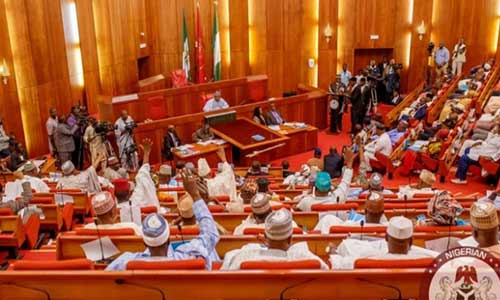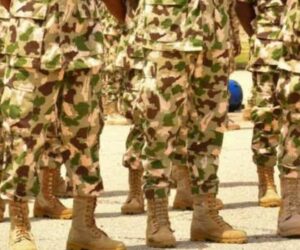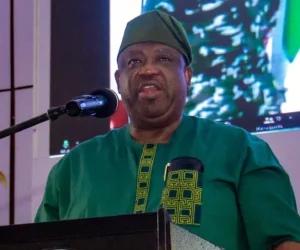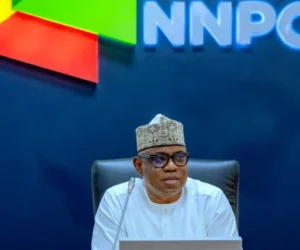The Senate, on Tuesday, urged President Bola Tinubu to approve the recruitment of 100,000 fresh military personnel to confront insurgency, banditry and the rising wave of school abductions across the country.
The lawmakers also demanded a full investigation into the Safe School Programme, questioning how funds allocated to the initiative were spent despite repeated attacks on educational institutions.
Their concerns were provoked by the recent attack on Government Girls’ Secondary School, Maga, in Kebbi State, where gunmen killed a vice principal and abducted 25 students.
The debate followed additional prayers to a motion raised by Senator Adams Oshiomhole (Edo North) during plenary, which triggered a heated session on Nigeria’s worsening security situation.
Senate President Godswill Akpabio presided over the sitting and later moved the chamber into a closed-door session to discuss classified details.
Oshiomhole, while leading the call for massive recruitment and a security audit, warned that the scale of insecurity required a strategic expansion of the armed forces.
He said, “I urge the President and the armed forces to recruit an additional 100,000 military personnel so we can have enough men and women in our troops. It is also another way to create employment for our youthful population.”
He also demanded answers on the Safe School funds.
“People have turned our security into a business. We should not monetise the death of our people by those living. What happened to the money earmarked for the Safe School Programme?”
Oshiomhole pressed further for a Senate-led probe and enhanced technological capacity for security agencies.
“Again, I urge the Federal Government and the relevant Senate committees to probe the funds appropriated for the Safe School Programme.
“I call on the military to deploy the use of technology and tracking devices to be able to track these criminals,” he urged.
His additional prayer was unanimously seconded and adopted by lawmakers across party lines.
Reacting, Senate President Akpabio endorsed the call for 100,000 new troops and supported the probe of the Safe School Programme.
“We urge the Federal Government and the Senate committee to probe the spending. Unfortunately, these criminals are going after soft targets.”
Akpabio also cautioned against politicising insecurity. He offered condolences to the victims of the Maga school attack.
“But crime is crime. It doesn’t matter under which administration it takes place. Even the almighty America has crime daily.
“All lives matter. May the souls of our fellow Nigerians and the vice principal who died in the course of protecting the students rest in peace.”
Despite adopting the Safe Schools Declaration in 2015, Nigeria has continued to suffer a decade-long pattern of attacks on schools.
The policy, endorsed by the Federal Government, outlines measures to protect educational spaces during armed conflict.
UNICEF has repeatedly urged full implementation of the declaration, stressing the need for safe and inclusive learning environments.
LEADERSHIP had earlier reported that gunmen invaded the Maga Comprehensive Girls’ Secondary School in the early hours of Monday, killing a vice principal and abducting multiple students.
A school guard was also injured during the attack. Security agencies, including the Nigeria Police Force and the military, have since launched a search-and-rescue operation.
The debate in the Senate also touched on the country’s current defence capabilities.
According to Global Firepower’s 2022 ranking, Nigeria retained its 35th position out of 142 countries and is rated the third most powerful military in Africa.
The report places Nigeria’s total active personnel at 135,000, with total military personnel at 215,000 and no reserve component.
The assessment also lists Nigeria’s hardware inventory: 140 aircraft, 376 tanks, 2,019 armoured vehicles, 349 towed artillery units and 47 rocket projectors, among others.
Despite these numbers, Senators argued that the gap between capacity and operational reality remains wide, making the case for fresh recruitment and better safeguarding of schools across conflict-prone regions.







